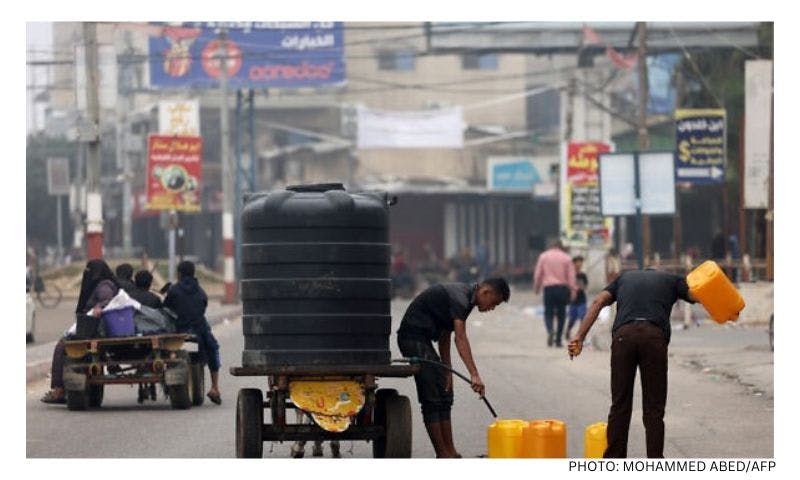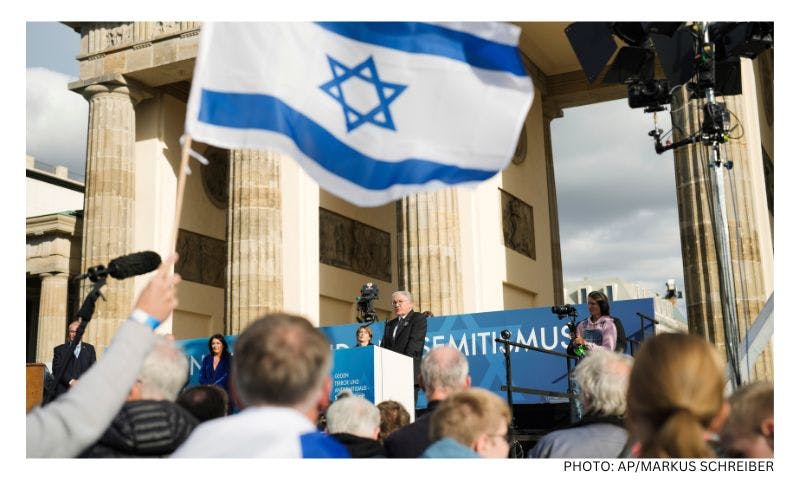Published: 22 May 2022
Last updated: 4 March 2024
Incoming Prime Minister Anthony Albanese has put Indigenous recognition and equality of opportunity first for the new government
PRIME MINISTER-ELECT Anthony Albanese’s first statement on election night was unambiguously ideological.
After acknowledging the traditional owners, he declared, “On behalf of the Australian Labor Party, I commit to the Uluru Statement from the Heart in full.”
In beginning with a commitment to constitutional recognition of the First Australians through a voice to parliament, Albanese set an agenda for his new government which is based on justice and equity.
For Australian Jews, as for all non-Indigenous Australians, recognition of the primacy of First Peoples is not only a matter of establishing an honest foundation for our nation, it also clarifies the basis on which we live in this land of migrants.
In the face of 60,000 years of settlement, those descended from the First Fleet, those who came as refugees after World War II and those who arrived from Sudan or Ukraine last week are equally newcomers.
Acknowledging that the rest of us are all ring-ins should be a guard against racism and hate, and should support the role of Australians from all backgrounds in shaping our nation.
The opening statement drew a clear line under the Morrison government, which refused to engage with the Uluru Statement, and offered a welcoming bridge to the large number of Independent and Green MPs whose support will be essential for Labor if, as seems likely, Albanese leads a minority government.
Albanese’s victory speech also placed social justice at the centre of his government. He put equality of opportunity firmly back on the agenda, making it personal by invoking his journey to The Lodge from a childhood in public housing with a single mother on a disability pension.

“I hope there are families in public housing watching this tonight. Because I want every parent to be able to tell their child no matter where you live or where you come from, in Australia the doors of opportunity are open to us all,” he said.
He mentioned opportunity more often than he mentioned the economy. But when he did use the word, he called for “an economy that works for people, not the other way around”.
Albanese canvassed a broad welfare agenda – wages, superannuation, Medicare, aged care, and childcare. It was not the moment to talk about how the government will fund this expensive list.
Nor was it the moment to acknowledge that, whatever the vision, this is going to be a government of compromise dealing with an unprecedented number of crossbenchers, who may well control the balance of power.
But it was significant that the issues which have driven the election of Greens and Independents – climate change, corruption, and equal opportunity for women – were all mentioned in his speech.
Labor will be pushed on these issues, and we can expect it will need to deliver on the environment, in particular, in order to get through its larger social and economic agenda.
Albanese has laid out a vision that will be welcomed by voters who care about social justice, equity and diversity.
Photo: Anthony Albanese delivers his first speech after his election victory (Lukas Coch/AAP)




